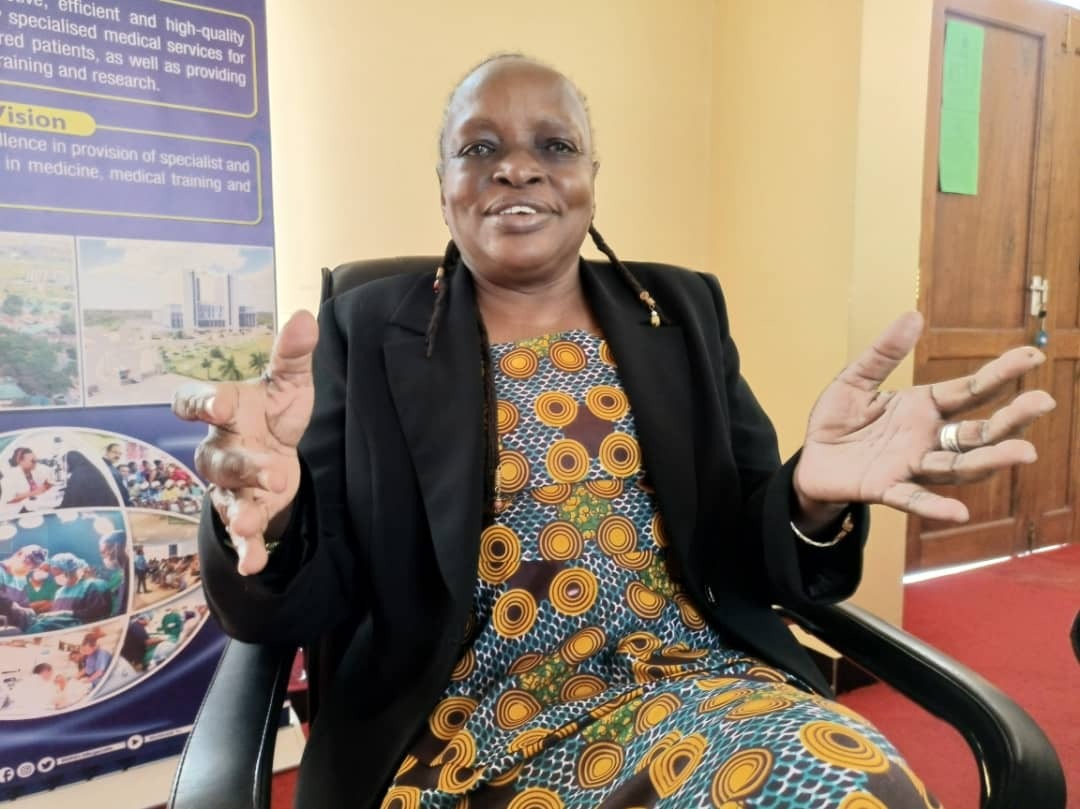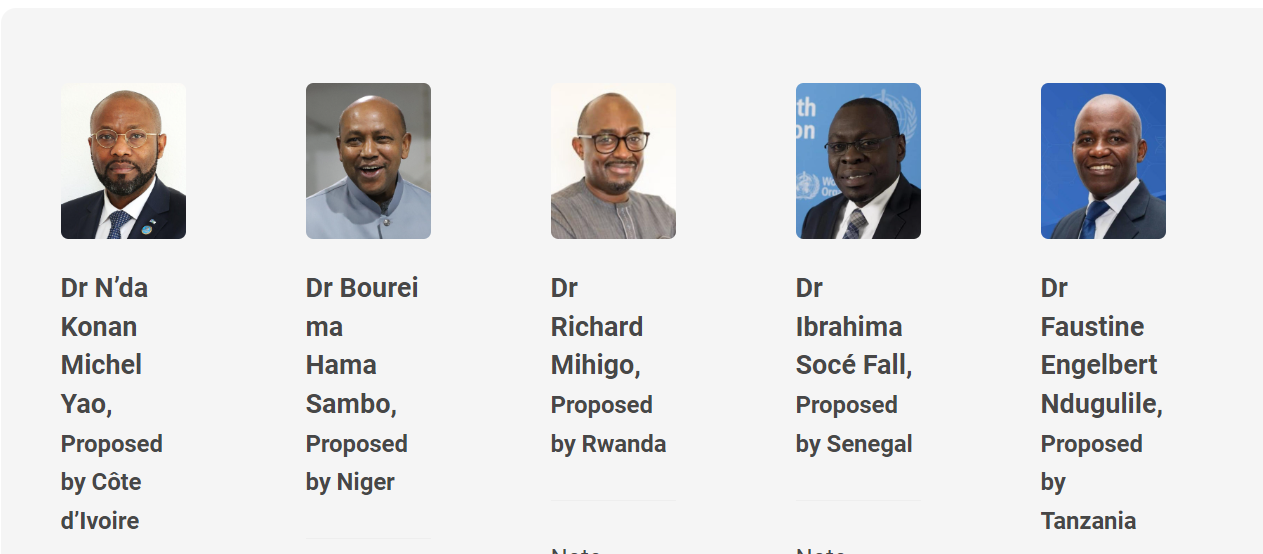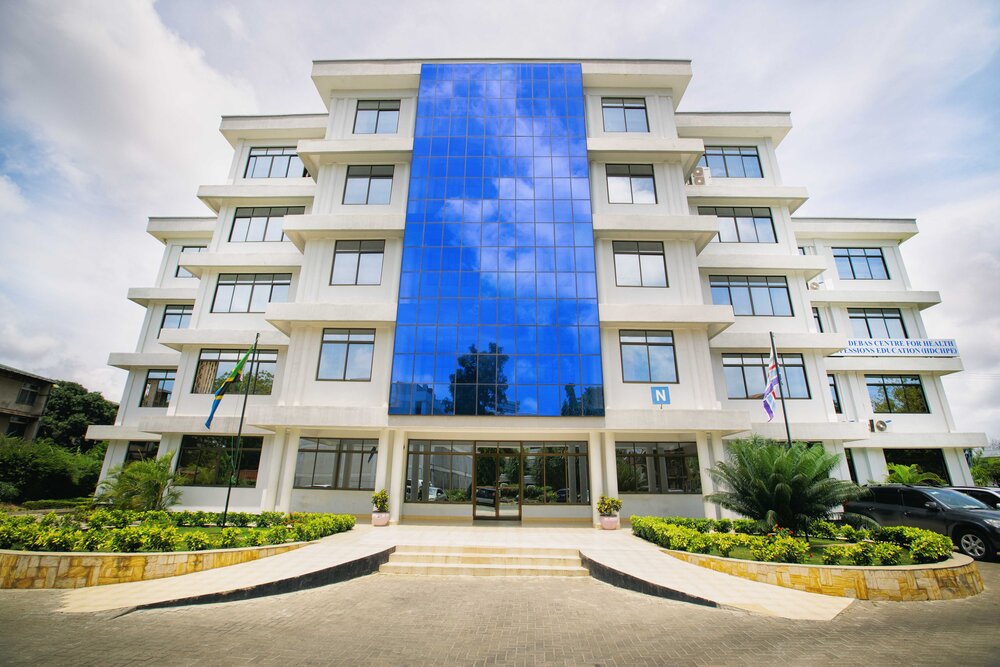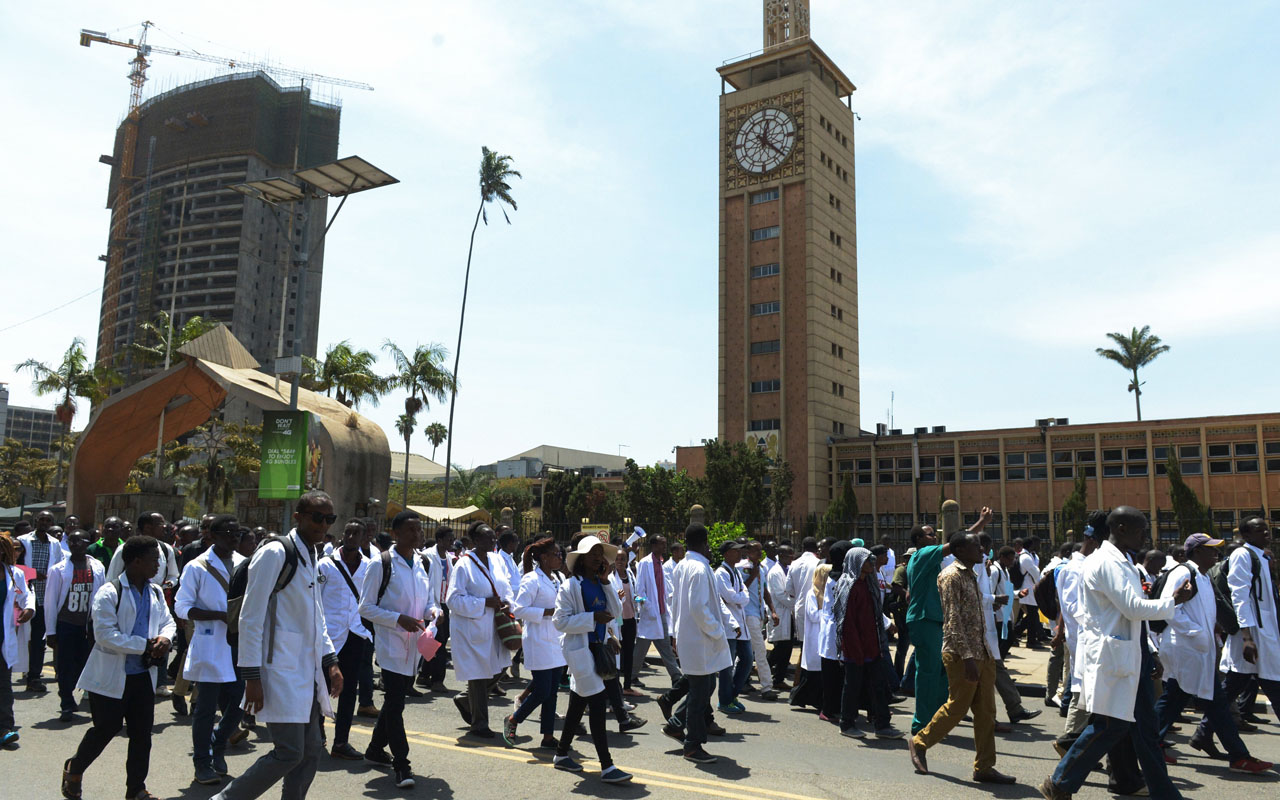Dr. Jessie Mbwambo, 66, a renowned psychiatrist in Tanzania has retired after working at Muhimbili National Hospital (MNH) for more than 30 years. She dedicated her career to improving mental healthcare, a field she embraced in the early stages of her career, fueled by a fascination with human psychology and a desire to help those struggling with mental illness. Despite the initial skepticism from her father, Mbwambo persisted and pursued her passion. Throughout her career, she has been at the forefront of research on drug use, HIV/AIDS, and mental health interventions, championing a holistic approach that incorporates social and psychological support alongside medication. She has nurtured a new generation of mental health professionals. As she reflects on her retirement, Dr. Mbwambo sat down in an interview with Syriacus Buguzi, a Science Journalist, who began by asking her why and how she ended up studying Psychiatry: Excerpts:
Dr. Mbwambo, you’ve now retired. Hongera sana. But, allow me to take you decades back. Why and how did you decide to pursue a career in psychiatry?
Mbwambo: I’m told when I was young, I used to play doctors and nurses. I used to have toys where people were injecting people or inspecting their chests. So, it was natural then for me to have taken science subjects, to have taken Physics, Chemistry and Biology in secondary school, and then to have my first choice of study as medicine at university. The first year of medicine is always very brutal. But I did enjoy it, especially the study of psychology. I thought it was very fascinating learning about people’s experiences, development, what it means in their brain, growing up and the expectations in life. But this was further cemented by doing psychopathology in the second year. This made me understand the abnormalities. And how they present themselves. And that made me think, well, this sounds to be something which could be a career path. But at that point in time, I was still figuring out what medicine is all about.
And what exactly did you figure out in the long run?
Mbwambo: When we came to the fourth year as medical students, we had patients who had physical illnesses for which we had to clerk them and do psychosocial history. Which would allow you to look at a patient more globally. Not look at them from just the physical side. But what about their psyche? What about their social environment? How does it contribute to their illness? And how does it contribute to them getting well soon enough and being able to be discharged from hospital?
And then, that actually then kept me thinking. So, there is a connection between being physically unwell and the world around you, whether it’s psychological or social. The social life.
What was it like to learn in those early years of medical school?
Mbwambo: Oh, yeah, it was actually in 1979 when I was in first year of medical school. By the time I studied psychiatry it was 1983 and 84 while in fourth year. It was very rigorous training because we really had to be hands-on. And we were fewer students in class so the exposure was even greater. And at that point in time I was locked in. I was like, this is what I’m going to do. I’m not going to do anything else. But as always, when you decide on a field of specialization, there are loopholes and there are challenges. You have to discuss it with the family. At least during my growing up, my dad was not particularly happy about me doing psychiatry. My mother who was a nurse was quite happy for me to do anything that I wanted.
Really challenging, isn’t it, especially when you have to convince your parents to pursue your passion? How did you negotiate your way through then?
Mbwambo: I was also good in pathology. My background in pathology made my initial shift with Dad a smooth transition. So, it was about: which one do you think I should do? Should I do psychology or psychiatry or should I do pathology? So my dad was horrified about all the two fields. He was not a medic. He was an accountant. His horror was if you do psychiatry, you might be mad. That’s one way of looking at things. And if you do pathology, you’re the person who does the last respects for a dead person who you might not even know. So he had very skewed views about doing mental health related field goals. But I had an uncle who was a psychiatrist. And he kept pushing me and saying this is the right direction. You have that light and it might be an interesting thing that you might want to do. So, eventually I graduated. I did my internship in Muhimbili. I had a wonderful rotation in psychiatry. And then I went to Tanga. Where I did three and a half years as a medical officer. And when I was in Tanga, what was very fascinating for me was, I had interest in psychiatry. So, if they had issues with people who had mental illnesses in the hospital, that’s psychological problems, they referred me to the specific department to go in and attend them. I would assess the individual Irrespective of which rotation I was doing. My mother was really happy for me. Because it turned out that some of the people I had treated knew her. And they would speak with her and tell her that it is a very good career path if I would do psychiatry. Much as I also was good at other things, she would say, I’ve got good news for you, these people who think you should go for medicine and these others think your skills are greater in psychiatry. But it’s your choice. And you can understand that coming from the person who did it.
And, how did you end up at Muhimbili?
Mbwambo: I transferred to Muhimbili Medical Center (MMC) in 1989. At that point in time, the Muhimbili Medical Center carried the umbrella in which; on one part you had the Faculty of Medicine and the other part you had the hospital. But the Director General was the overall in-charge. And when I came, I went to the Department of Psychiatry. And I was assigned to join the faculty of medicine wing of psychiatry. I didn’t stay for a long time here. At that time, we didn’t have residency in psychiatry in the country. So I had to travel to the UK where I stayed for three and a half years doing psychiatry. I returned in 1993 and I worked for three years before I got another scholarship. And did a fellowship in research, health and behavioral research in the US. I was attached to the Department of Social Medicine of Harvard Medical School. By the time I returned to Tanzania, there was this move to shift from MMC going into Muhimbili National Hospital. And that was finally successful in 2000. Muhimbili was granted a mandate to become an autonomous facility by the Act of Parliament. Now, at that point in time, we had to then decide in the department how to do this. We’re very few psychiatrists. Three of the psychiatrists had already retired and were working on contract. And there were only four union members. And we had to sit and think of how to make sure that we have psychiatrists in the hospital as well as on the university side. And the determining factor at the end after we had a lot of discussions was, we need to have somebody strong in research on the hospital side as well as in the academic side. And because one could hold dual positions. So, at that time, one would get employed by one institution but you offer services to the other. I as a person in the hospital side was training and teaching and supervising junior researchers in the academic side. It was a ping pong situation in which in our department you never realized which side of the institutions you were in because you had to do everything at all times. So my career in research in psychiatry actually started in 1989.
What did you start by researching about?
Mbwambo: The initial study that we did was looking at the effect of cannabis on medications that people did use as long ago. And then I left in the middle. So, I had to leave behind everything with somebody else who was going to continue with the study. But on my return back, we continued with drug related research. And initially. We did an assessment to try and see what drugs are there in Tanzania. And we did situational assessment in five zones. At that point in time heroin was just starting to come into the country.
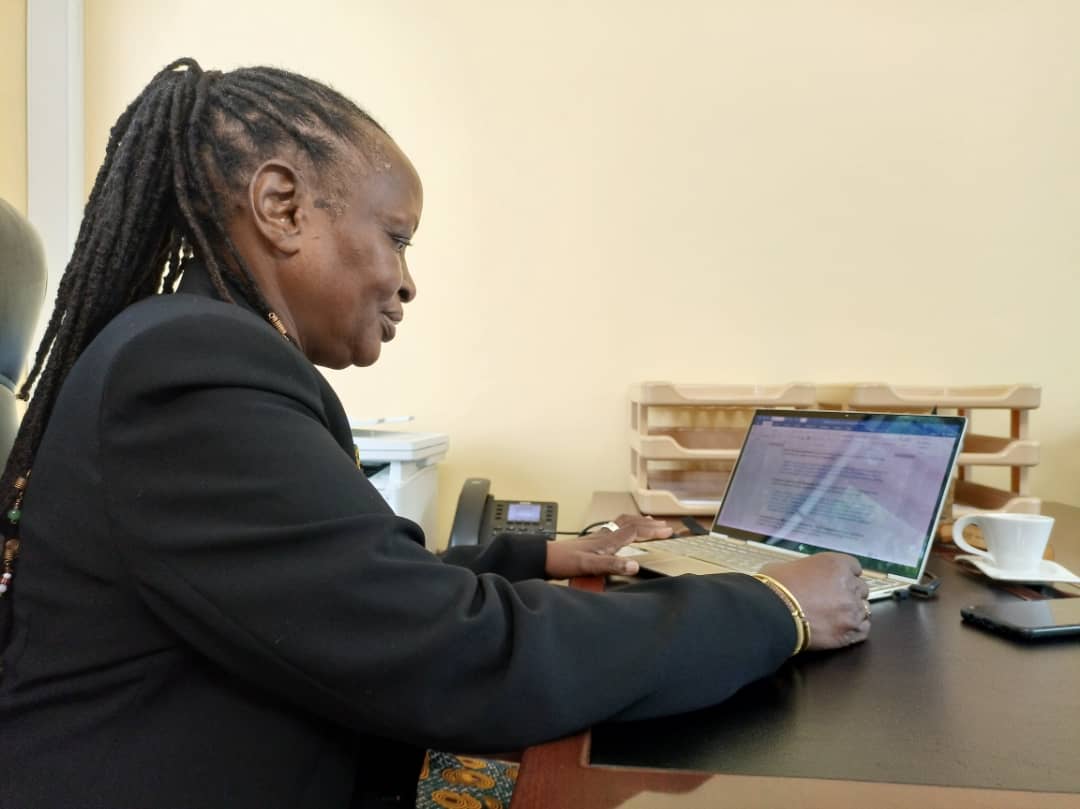
And unfortunately for kids in Arusha, they already had started injecting. And what was very frightening, they were dying of HIV. While in the rest of the areas, people were still smoking. So, there were very many bad experiences. With that, we started saying we really need to do something about this. And we did a series of studies to just get a sense. Is there any association? Of drug use with other conditions? Whether it is physical conditions.
Challenging indeed. What were your findings?
Mbwambo: Very frightening. We saw the association between injection drug use with HIV and hepatitis. At the peak, the people who injected drugs had HIV at the rate of 42%. At that point in time, the country was at about 12%.
Which year was that?
Mbwambo: That was in the early 2000 to mid-2000.
Tell me more about that, like: how were you researching?
Mbwambo: We were picking needles from different drug tents to just try to make sense of how serious the problem is. And we could see the shifting epidemic. That you find a lot of people who are using injections in the city. There was higher prevalence of HIV compared to that of areas which were outside the main city center. But I think by the time we were coming to the year 2010, HIV prevalence was across the board very bad. But not only that, hepatitis C was above 60%. And not only that, hepatitis B was picking up. There was a high rate of TB. And we also were seeing very high rates of depression and anxiety. Amongst people who used drugs irrespective of if they injected or they did not inject. So okay, we found the problem. We need to find solutions. We were seeking effective solutions for opioid addiction. Agonist therapy emerged as a viable option, and we focused on finding the most affordable one. While the Western world primarily employed opioid substitution therapy, we adopted an approach that considered both medical and sociopolitical factors. This was a holistic approach.
How did society perceive this?
Mbwambo: There were misperceptions at that point in time. People believed we were giving people money to come for services. But, by providing methadone treatment and surrounding patients with a holistic support system, we helped a large number of individuals struggling with drug addiction. We emphasized community involvement and social support, earning me recognition and awards from the Medical Association of Tanzania (MAT), by then. These awards celebrated my contributions to the community and my efforts to empower individuals to overcome addiction and lead healthier lives.
What was it like to ethically conduct research in an environment where you’re working with people who are vulnerable?
Mbwambo: It was about: How do you give them dignity? How do they guide you in doing things? How do you include them as being your research partners? This approach allowed my team to access participants with HIV who also used drugs, by setting up a “one-stop model” that provided comprehensive care including methadone treatment, HIV medication, TB treatment, wound care, and referrals for other needs.
Exactly, what were your research interests?
Mbwambo: I heavily invested in HIV-related work, particularly counseling. I saw the psychological aspects of HIV and the importance of self-efficacy, or a person’s belief in their ability to achieve goals. For over two decades, I focused on various aspects of HIV care, including testing and counseling, treatment adherence, and mental health barriers. I supervised students researching the intersection of HIV and depression, and I continue to explore how community empowerment programs and self-efficacy can help female sex workers protect themselves from gender-based violence, a significant risk factor for HIV. I also researched refugee populations, where I examined the impact of trauma on mental health.
And you mentored many in this area?
Mbwambo: I can say, yes.I’ve guided several young researchers in their work on mental health. My mentees have conducted research on various topics, including the impact of gender-based violence on women’s mental health and the effectiveness of treatment for mental illnesses like schizophrenia. I’ve also been involved in research myself, focusing on addressing the stigma associated with mental health conditions and developing innovative approaches to treatment. One of my notable research projects was a phase two trial to evaluate the effectiveness of a new medication for people with schizophrenia who struggle to adhere to their treatment. The trial demonstrated promising results, suggesting that the medication could improve outcomes for these patients. My research has contributed to a deeper understanding of mental health conditions and the development of more effective treatments.
Looking at where you started from, psychiatry was not as advanced as the current one. Have you seen milestones in terms of adapting to innovations?
Mbwambo: Yeah. Two things. In the-people-who-use-drugs arena, the work that we’re doing is innovation itself. The one-stop environment of care is something that other people have been coming to learn from us. The way people deal with people who use drugs and giving them treatment. We are holding this one person and making sure that it’s holistic for them to be in an environment where they will go back and be useful members of the community. Instead of requiring patients to detox in a facility, we provided them with methadone treatment while they remained in their homes. This approach recognized the challenges of maintaining sobriety in the community and aimed to provide support where it was needed most. I emphasized the importance of holistic care for mental health conditions. I also advocated for a team-based approach, involving social workers, psychologists, physicians, and nurses to address the various needs of patients. This approach contrasted with the traditional focus on medication alone, which often fell short in providing comprehensive care.
I would like to hear how you envision the future of mental health care, especially in Tanzania.
Mbwambo: If you look at our country, there is already a direction towards that. The direction is don’t let people get into serious mental illness. Try and find ways to prevent it. This started off, I think it was in 2022 when there was a big mental health dialogue in Tanzania. And in that dialogue, there was an emphasis on the challenge that we only intervene when people are at the end stage. I believe by addressing mental health issues at various stages of life, from pregnancy to adulthood, Tanzania can significantly reduce the prevalence of serious mental illnesses. There is also the importance of creating a supportive environment for individuals at each stage of life, from early childhood development to adulthood. There is also a need for comprehensive assessments, early interventions, and appropriate support systems to address potential mental health challenges. We also need to address societal factors that contribute to mental health issues. That means shifting in cultural norms and expectations, particularly regarding gender roles and relationships. If we promote healthy relationships and address issues such as gender-based violence, Tanzania can create a more supportive environment for individuals’ mental well-being. I am seeing a future where mental health care in Tanzania is proactive, comprehensive, and tailored to the specific needs of individuals at different stages of life.
What’s your advice to aspiring mental health professionals?
Mbwambo: Right. Everybody should aim at being a mentor. Okay. Being a mentor means being there for somebody who has less experience than you have and less expertise than you have. And you are there to pull them to where you are or to go beyond where you are. It is the culture that we have to inculcate in people. I remember my grandfather’s mentorship instilled in me valuable life lessons and shaped my understanding of leadership and community engagement. Mentorship is not limited to professional guidance but encompasses various aspects of life, including personal relationships, career development, and community involvement. I encourage aspiring mental health professionals to embrace the role of mentor and contribute to the development of future generations. And, young people need to adapt to new ways. Looking at the way technology has evolved over the years.
Do you think social media is increasing the mental health burden? Are we adapting to it in a way that we should?
Mbwambo: It is both ways. One of the ways is there is bad social media, time-wasting and also has a mental health toll into it. The good social media is educated. Now, it is timely. It is how we navigate into good social media. Good social media can be very boring. But it is very useful. We can’t run away from technological advances. We have to embrace them. It is how to embrace what needs to be happening. We just need to learn what is too much, what is too little. But one of the greatest innovations I find is at the top of a button, you have all the information with you. And it’s up to you to synthesize what it is that you want to do with what you have. You have got it so for mental health experts the issue that is usually worrisome is cyber bullying especially and overuse of negative social media.
You’re retired now. Can you reflect on what things you are grateful about as you continue with your retirement?
Mbwambo: Let me just start off with the fact that I’m grateful about life. I was given a life and in that life I learned to do things. And the thing I’m grateful for is the ability to care for people who need the services that I’m able to impart. The second one is the ability to have friends and to have junior colleagues and to be able to work with a large, large, large group of people. I have been, I have had the advantage to travel the country, and people I meet are like: Dr. Mbwambo Karibu! It’s a very satisfying feeling and I think if people were to learn anything it’s how to be friends with everybody whether it’s your students whether it’s your neighbors other family members it’s other group of individuals. I think I really appreciate it. And I appreciate that I was able to build that network.
But there are stories that may have shaped your life, or a story that always sticks to your mind, but particularly in the context of your career.
Mbwambo: The story I will never forget, and it’s a funny one, I can say. I was blessed with a son. So, I have this humorous yet impactful personal experience that significantly influenced my approach to my career. When my young son exhibited hyperactive behavior, me and a colleague were initially concerned about potential underlying health conditions. However, upon consulting with a pediatrician, we were advised against over-medicalizing the child and were reassured that my son’s behavior was within normal limits. This experience taught me a lesson about the importance of careful assessment and avoiding hasty diagnoses. I realized that over-medicalization can be a common challenge in healthcare and emphasized the need for thorough evaluation and consideration of all relevant factors before making a diagnosis.
I think this is really inspiring and we’ve heard and learnt a lot from you.
Mbwambo: You are most welcome





